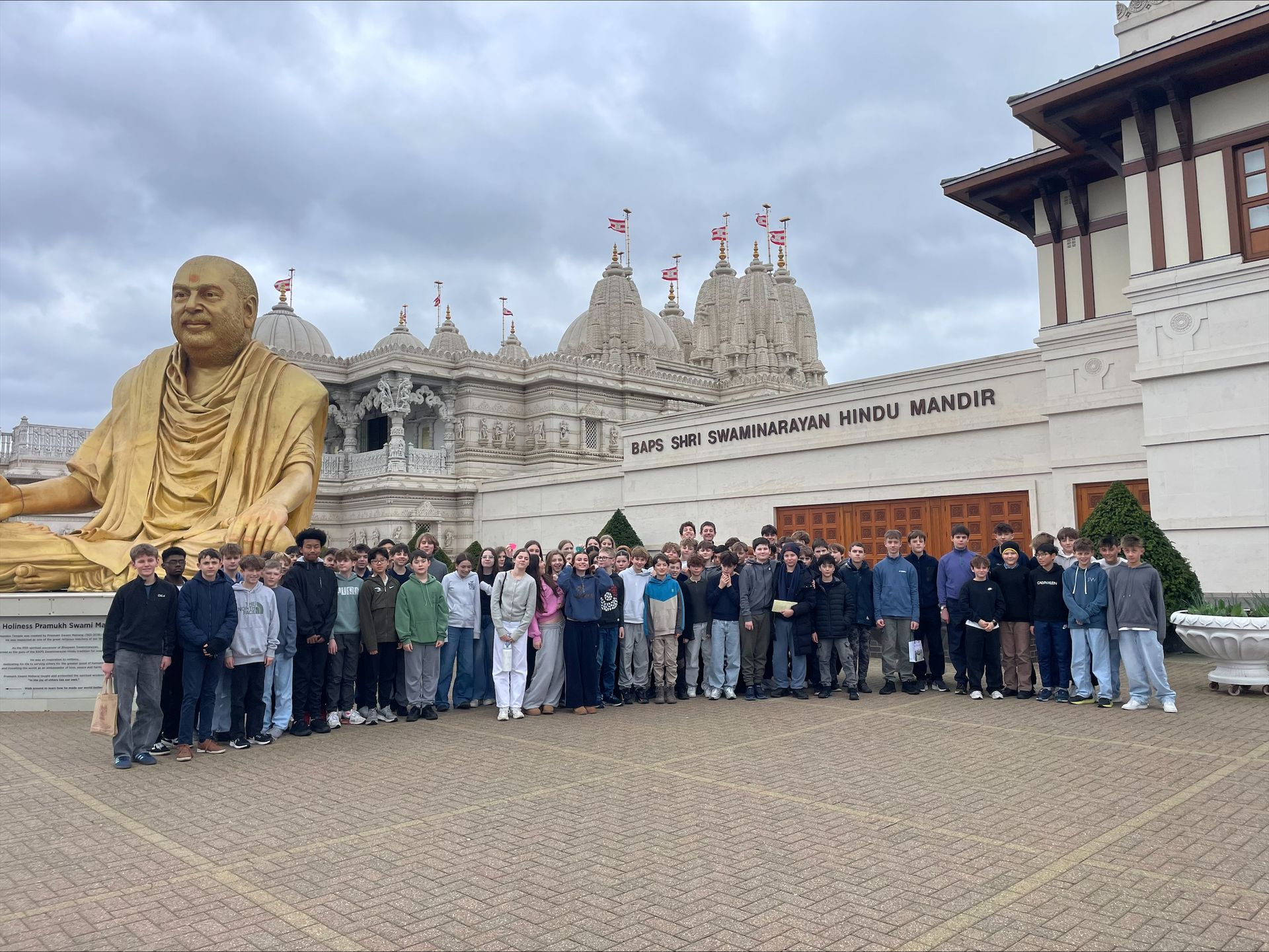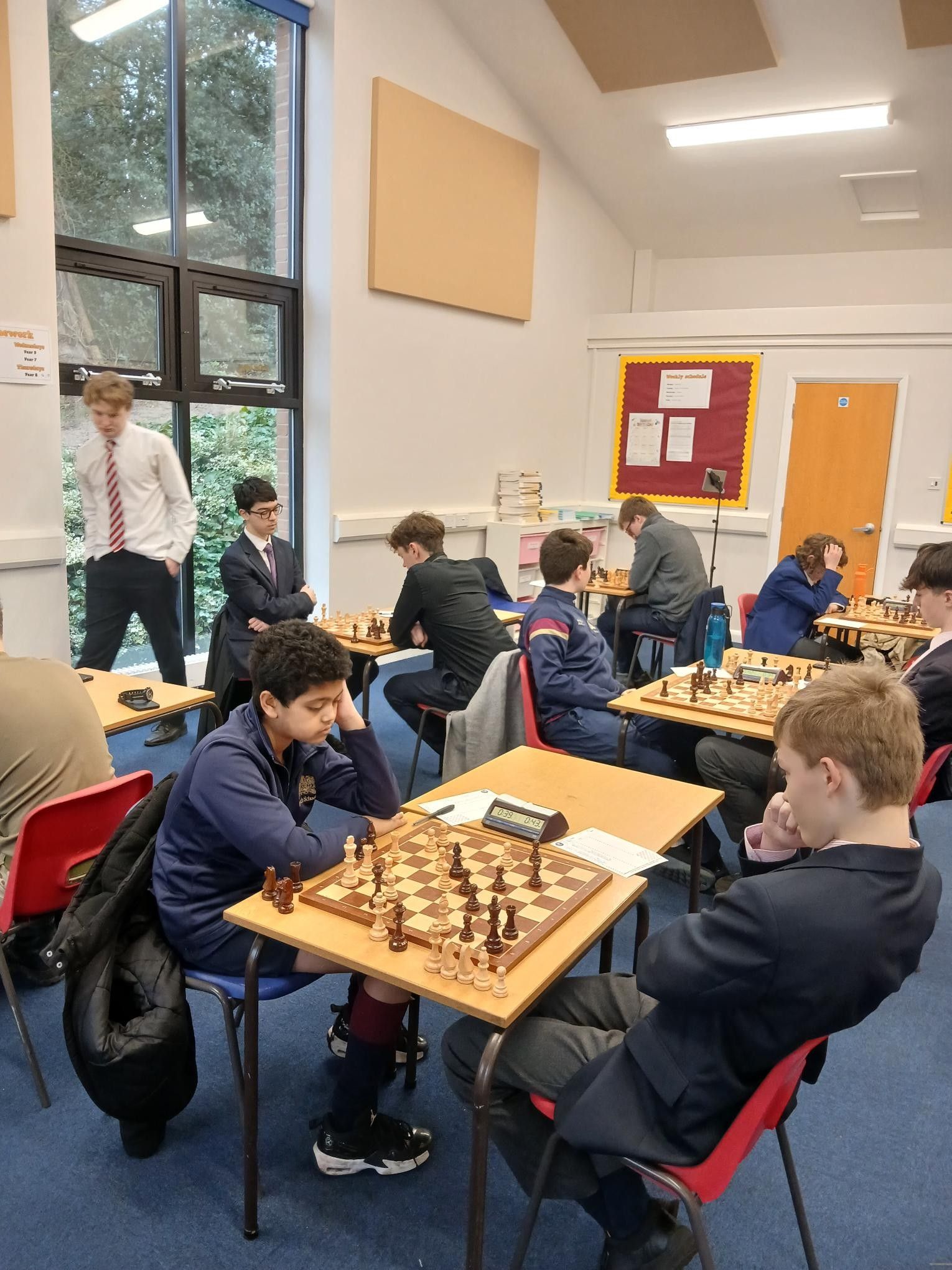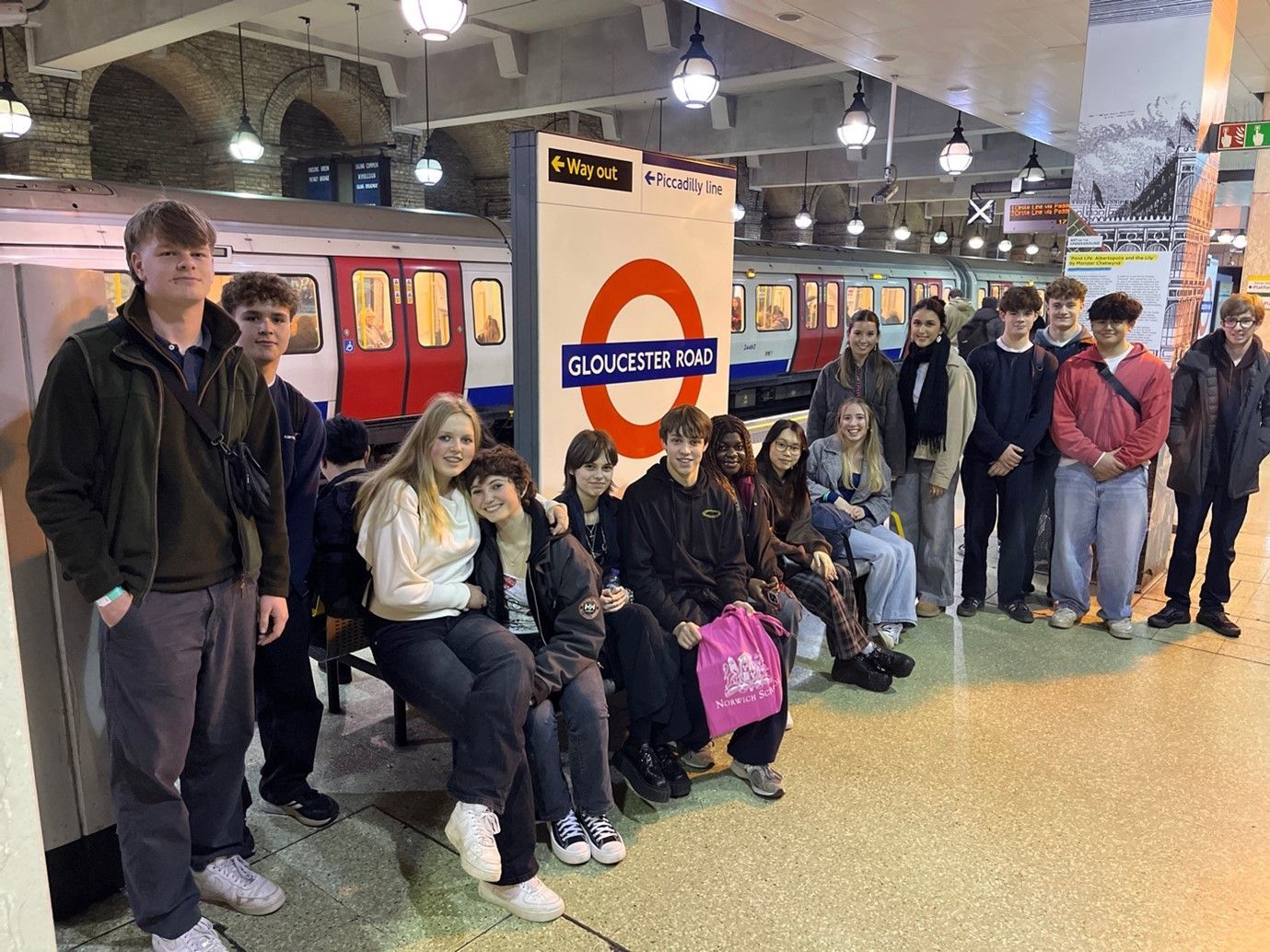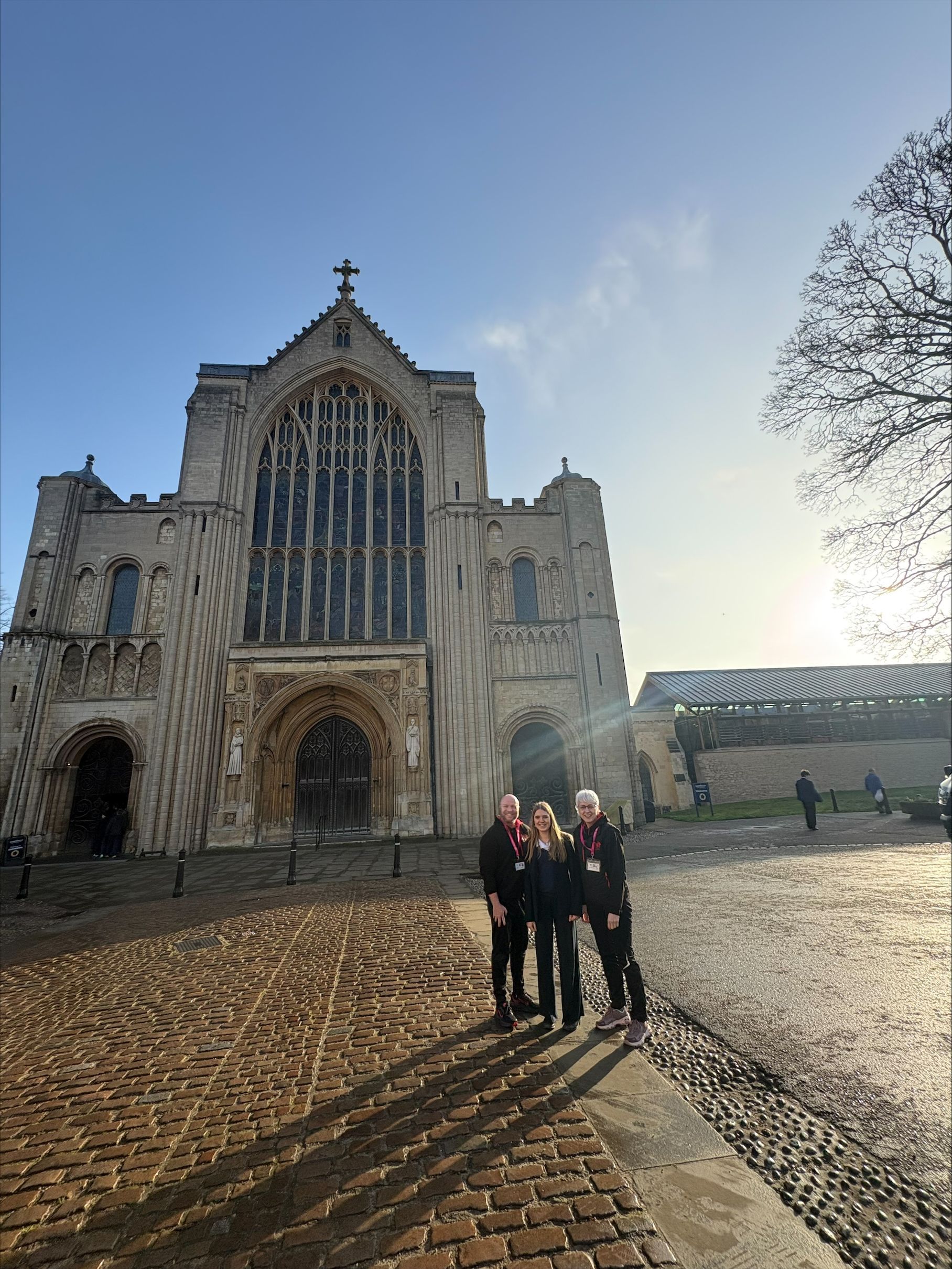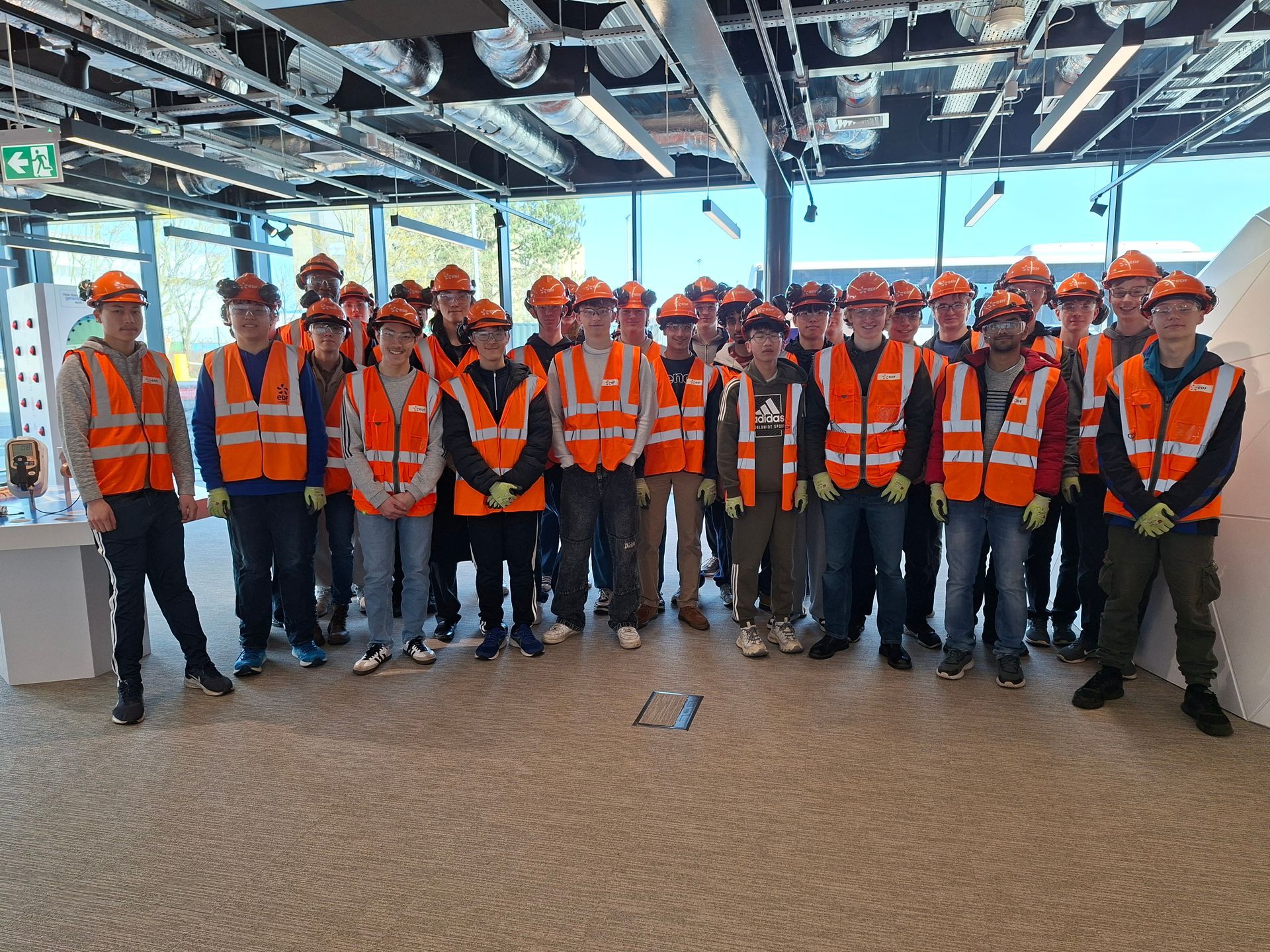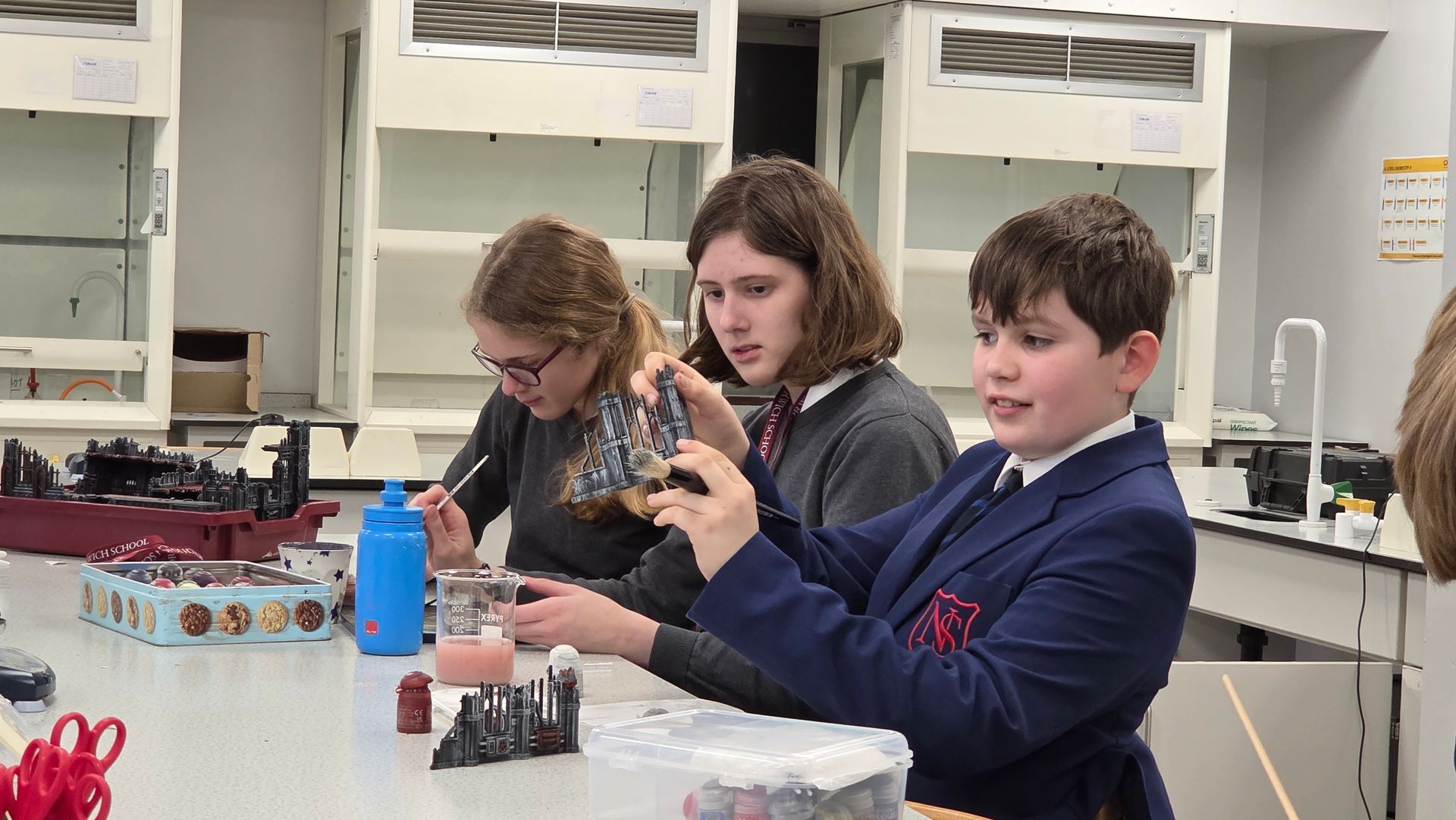At Least You Spoke to Me - An Assembly from Barny Pearce
November 21, 2025
This morning, I’d like to tell you about six words that changed my life. Before I start, I realized after I’d written this, that it’s a moment that’s lived in my head, for 20 years, which I’ve never shared with anyone – but I share it with you, now.
Once upon a time, I lived and worked in London. I commuted each day on the Central Line: that flat-lining red on the underground map that pierces the city’s smokey heart before bouncing a guilty getaway towards Essex. I’d survive my cramped and sweaty tube journeys with all the usual tricks: reading a book with my face in someone’s armpit; guessing what kind of a day the person next to me had, based on the state of their work clothes; and challenging myself, on the way home, to a game of nap-gamble: could I sleep for exactly long enough that I’d wake up in time not to miss my stop? It was high-stakes: my stop, Ealing Broadway, was the end of the line: missing it meant waking in a cold sweat to find that the train was already taking me back to work.
One such ordinary journey home took place in the hot heights of Summer. I’d spent a very sweaty 45 minutes trying to read my book whilst squished unthinkably close to a man whose shirt – creased, untucked, and flecked with specks of broccoli and chocolate pot pudding – told of a particularly unfortunate day at the office canteen. At Ealing Broadway, the train expunged us all – apart from that day’s nap-gamble losers – and I emerged into the night with hundreds of others.
Then my day changed. Flooding through the ticket barriers, I saw a man at the entrance to the station. He stood out immediately because he was boldly facing commuter deluge head on, like a fish swimming up-river. He was evidently hungry, homeless and begging for small change. I’d always been taught that the best way to help the homeless was not to give money directly, but to give to relevant charities – so I just looked at the man, slightly sheepishly, and said “sorry mate”.
In a sudden, quiet, gently smiling blaze, his eyes fixed on mine as he said those six words: “At least you spoke to me.”
At those words, something shifted in my head; I glimpsed in a flash how it might feel to be rejected by society; to be in the country’s busiest, most iconic city, yet washed over by a wave of a thousand commuters who look right past you. “At least you spoke to me”.
Now I need to be clear here: I was a young adult, in my twenties, and I’m not suggesting you start speaking to strangers on the street: as young people, you should actively avoid doing this.
But there’s a powerful principle here: to reach out to the vulnerable; to validate those on the edge; to show compassion to those others overlook – this you can do in all sorts of ways.
Jesus was the master of it. Did you spot the odd details in our reading, as he meets the woman at the well? Collecting water in the Middle East 2000 years ago was done by women – but usually early in the morning (before it got too hot) and usually in groups, because it was a social high point of the day.
But this woman is there at noon – blazing heat o’clock – and she’s alone. Why? If we read on, we’d find out: she’s an outcast, shunned by her community: “cancelled”, we might say today. Worse, she’s from a community that itself was excluded: Jesus’ community and this woman’s community were arch enemies. This conversation should never have happened.
And yet here’s Jesus, reaching out to this outcast woman with six words of his own – “Will you give me a drink?” The conversation changed her life.
It’s not a one-off. We don’t have time for the full stories of Jesus reaching out to Zaccheus – the hated tax collector who Jesus went to tea with; or the countless times Jesus healed those whose medical conditions tragically made them outcasts; or the time a shunned woman crashed a party to pour perfume on Jesus’ feet, to be rebuked by the hosts, but welcomed by Jesus.
Jesus never waited for any of them to be socially acceptable enough, or cool enough, or clever enough, or talented enough... Reaching out to the lost, the unseen, the excluded, exactly as they were, was Jesus’ whole mission, right up to what happened on the Cross. Romans 6:8: “For God showed his love for us in this: whilst we were still sinners, Christ died for us”; or 1 John 4:10: “This is love: not that we loved God, but that he loved us.”
Jesus’ loving kindness is grace: not kindness that needs to be earned or qualified for; not “kindness because” – but “kindness anyway”.
So what about you, today? You can choose your point of reflection – from Jesus’ loving grace in this Bible reading, to the moments in our friendship groups where we really annoy each other and it might be time for a bit of “kindness anyway”.
Some of you might head for a lifetime of leadership and service where your career sees you reach across boundaries to care for the excluded who society chooses not to see and finds it hard to love. I hope so.
But there’s something you can do today, too; and at the very least it will show you that I’ve been listening in recent assemblies.
What would happen to our school if we took the “quiet leadership” that Rosie spoke of on Trafalgar Day, or the “bold compassion” that Ben spoke to us of on Wednesday, and multiplied them by the accumulation of marginal gains that Dr Clark endorsed week before? What would our doorways and corridors, our classrooms and study spaces, our changing rooms and practice rooms and our pitches and our palace, be like, if adorned with a thousand tiny daily expressions of “kindness anyway”? A thousand “at least you spoke to me” moments? That’s just one or two each, by the way. I see so much of this here already – but what if we all did it? What would happen then?
Well: let’s see, shall we? Because let me remind you where I started: I didn’t tell you, grandly and nobly, as I emerged from that stuffy train dabbing the sweat from my forehead, that I changed a man’s life at Ealing Broadway that day. No: I told you that he changed mine.


